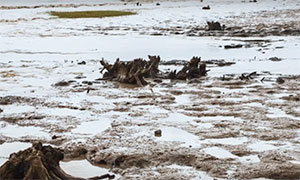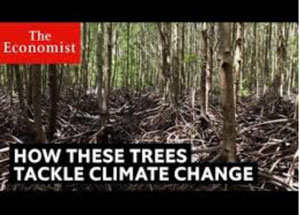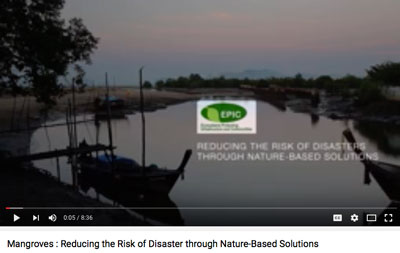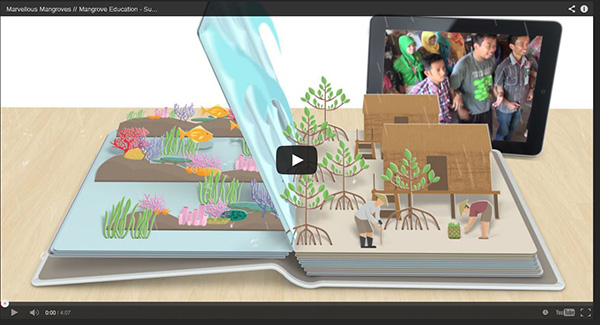|
The MAP News
495th Edition May 23, 2020 |
|
|
FEATURE Our solutions are in nature -- International Day for Biodiversity 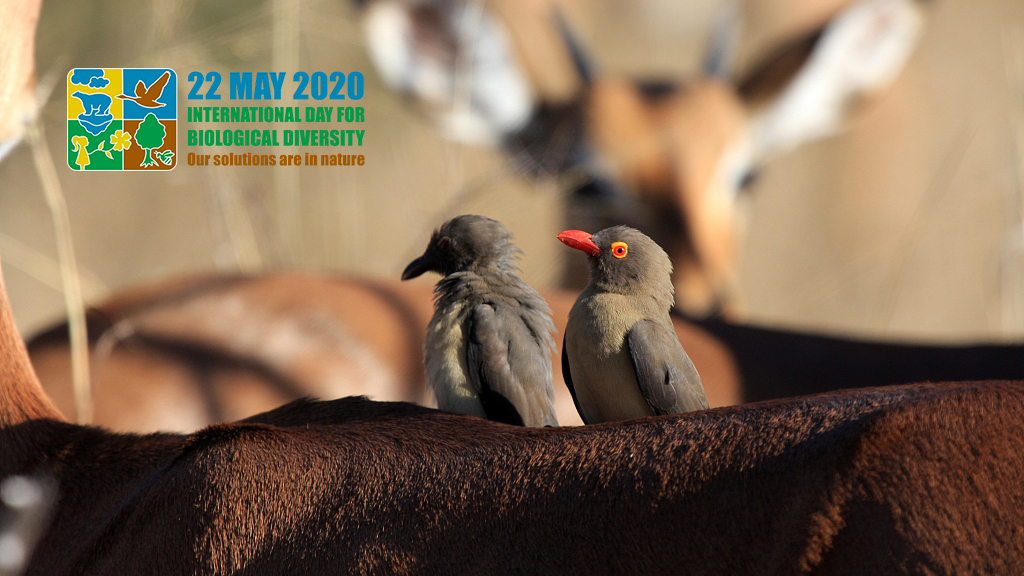 GLOBAL - May 22 marks the International Day for Biological Diversity. The year 2020 is a "super year" for biological diversity and climate emergencies. Our world is facing an unprecedented environmental crisis with a large number of species on the brink of extinction and global temperatures continuing to rise. What is biodiversity? Why should we care? What would happen if it disappears? Watch this video to learn more. May 22 marks the International Day for Biological Diversity. The year 2020 is a "super year" for biological diversity and climate emergencies. Our world is facing an unprecedented environmental crisis with a large number of species on the brink of extinction and global temperatures continuing to rise. What is biodiversity? Why should we care? What would happen if it disappears? Watch this video to learn more. VIEW VIDEO GLOBAL Global Biodiversity Festival MAY 22-24, 2020 | Live feeds on Youtube  GLOBAL - International Day for Biological Diversity, celebrate with a virtual extravaganza featuring scientists, explorers and conservationists from across the globe! The Global Biodiversity Festival is a virtual weekend with a simple goal of bringing the amazing diversity of life on our planet, live into everyone’s home during these challenging times. From the 22nd – 24th of May, we'll share the amazing variety of life on our planet and the scientists, explorers, conservationists and filmmakers documenting and protecting it. We’ll highlight the weird and the wonderful, but also the conservation challenges, along with the good news success stories. The Global Biodiversity Festival is 100% free to join in. Our goal is to raise some money for some great conservation organizations around the world that do incredible work, but are being impacted by Covid-19. All we ask is that if you can, please make a donation, and all funds will be shared between the organizations. VIEW SCHEDULE World Mangrove Day Photo Contest  GLOBAL - We invite you to send us your best photos for a chance to be part of a special exhibition that will help highlight the beauty and importance of these undervalued coastal ecosystems. Photos will be judged by an expert panel and there will be special prizes this year for our three chosen winners. Wherever you live in the world and whether you are an amateur or professional, beginner or expert, young or old, this contest is for you! Your images have the power to inspire people and to help raise the profile of mangroves. The deadline for entries in the 24th July! Don’t miss this opportunity to share your photos with the world and participate in our mission to protect these incredible ecosystems! Visit this link for some inspiration and find out other ways in which you can get involved with the Mangrove Action Project! READ MORE AFRICA A Major Oil Pipeline Project Strikes Deep at the Heart of Africa 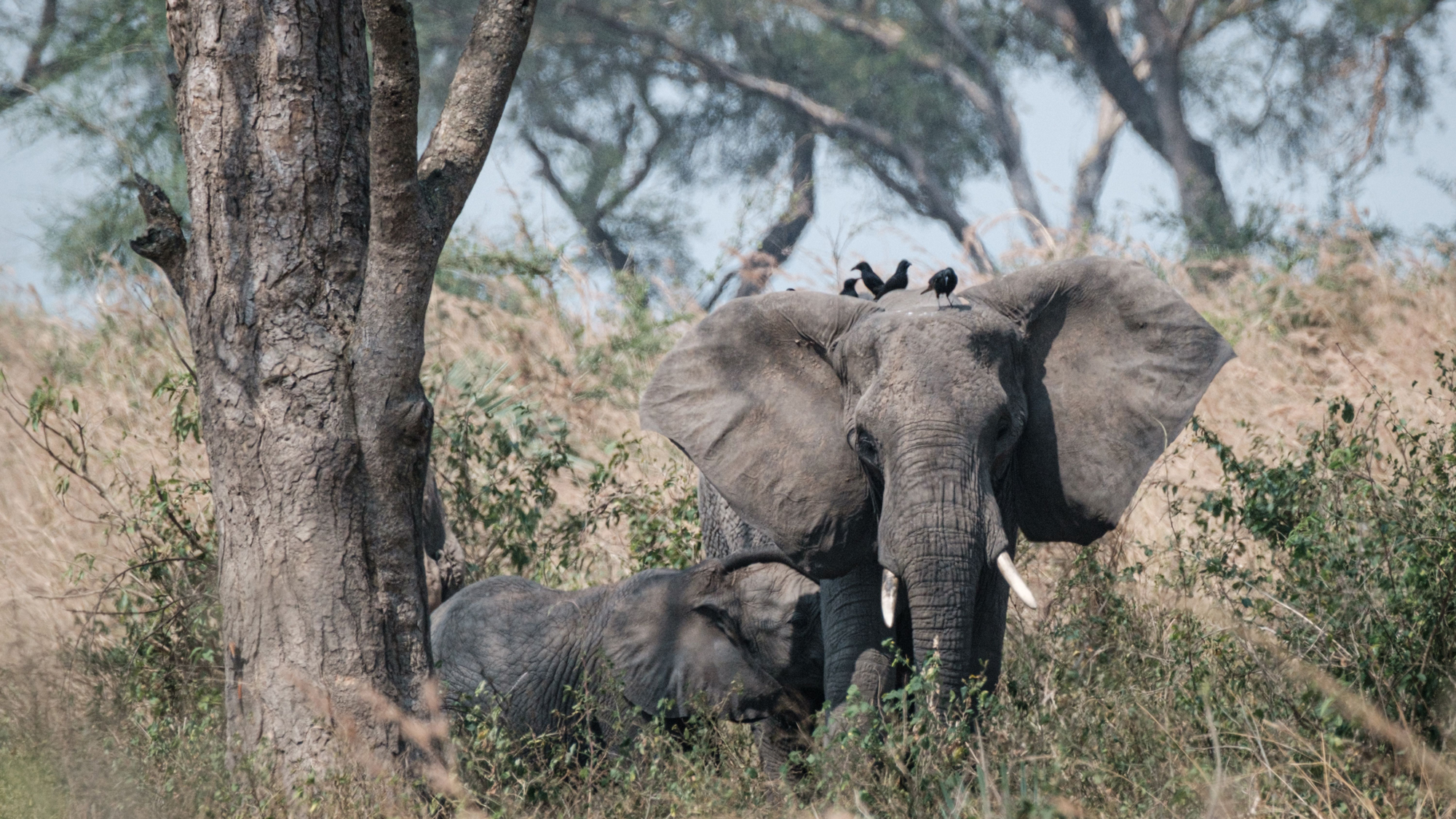 EASTERN AFRICA - Imagine a tropical version of the Alaskan oil pipeline. Only longer. And passing through critical elephant, lion, and chimpanzee habitats and 12 forest reserves, skirting Africa’s largest lake, and crossing more than 200 rivers and thousands of farms before reaching the Indian Ocean — where its version of the Exxon Valdez disaster would pour crude oil into some of Africa’s most biodiverse mangroves and coral reefs. Such a project is ready for construction, to bring to the world oil from new oil fields in the heart of Africa. It is the East African Crude Oil Pipeline. “Transportation of oil will take place over mangrove and coral reef area,” where “intricate coastal environments make oil recovery and cleanup very difficult,” says WWF. Nearby, it points out, are two marine protected areas — the Pemba-Shimoni-Kisite reserve on the border with Kenya, and the Tanga Coelacanth marine park — which are noted for their coral reefs, dugongs, dolphins, and sea turtles. The oil fields and pipeline also threaten local communities. The Chinese-run Kingfisher field will be built in a “small, formerly isolated area,” where local communities are heavily dependent on natural resources such as fish and firewood, says the NCEA. It says the impacts report is unclear on whether the company plans to compensate communities for loss of common grazing land and water sources; and it warns there could also be ethnic tensions between locals and Congolese migrant workers. READ MORE AMERICA Millions donated to save Clarendon mangroves JAMAICA - THE Inter-American Development Bank (IDB) has signed a landmark agreement for mangrove restoration with The University of the West Indies (The UWI)-based Solutions for Developing Countries (SODECO). The agreement — signed by Therese Turner-Jones, the IDB's country representative for Jamaica, and Professor Terrence Forrester, chief scientist at SODECO — will enhance Jamaica's ability to adapt and increase its resilience to climate change through a technical assistance programme on mangrove restoration. Financing for the restoration project will come from a grant valued at US$2.45 million, which is J$360 million, provided by the “UK Blue Carbon Fund”, which was established in the IDB in 2019, and financed by the United Kingdom's Department for Environment, Food and Rural Affairs. READ MORE ASIA The dire impact of removing mangroves in Andhra for a govt housing scheme  INDIA - Over the past three months, coastal Andhra Pradesh has lost several acres of mangrove cover, near the fishing villages outside Kakinada town. An extension of East Godavari’s Mada (mangrove) forests, the land has been levelled by the state government authorities, for a housing scheme. Under ‘YSR Pedalandiriki Illu’ (housing for the poor), one of the flagship schemes of the YSRCP government, the government plans to use the land to build houses for beneficiaries of the scheme. While the levelling work had begun around three months ago, the fishermen from nearby villages, who depended on the land for their livelihood, say that much of the work was carried out after the nationwide lockdown came into place from March 25. Since then, petitions have been filed with the National Green Tribunal (NGT) as well as the Andhra Pradesh High Court, objecting to the removal of the mangroves. While the High Court has ordered to maintain status quo on the construction activity, the NGT has constituted a five-member panel to look into the matter. Meanwhile, opposition parties have become more vocal in their stand against the use of the coastal land for the scheme, and young people from the state have launched an online campaign called Save Mada Forests, to bring attention to the problem. NGT urged to stop govt. from destroying mangrove forests  INDIA - NGT and Supreme Court advocate Sanjay Upadhyay has urged the National Green Tribunal (NGT) to stop the State government from destroying the mangrove forests in an extent of 100 acres in Kakinada. In the petition he filed on behalf of environmental activist Bolisetty Satyanarayana in Chennai on Friday, Mr. Upadhyay said that the mangrove forests, which provide livelihood to 54,000 people eking out a living by fishing, was being cleared by the government to be distributed as sites under a housing scheme. The mangrove forests that were of immense significance for their bio- and eco- diversity were being cleared against the lockdown norms announced by the Central government to arrest the spread of COVID-19, the petition mentioned. READ MORE Kakinada: Tension as cops prevent TDP team from visiting mangroves  INDIA - Tension prevailed when police intercepted a team appointed by TDP chief N Chandrababu Naidu with a mission to inspect alleged destruction caused to mangroves by the government to accommodate house sites here recently. The police asked the team to go back without visiting the mangrove site. A heated argument between the TDP leaders and the police followed. The TDP fact finding team was led by former home minister and Peddapuram MLA N China Rajappa and former minister Pitani Satyanarayana, former MLA Vanamadi Venkateswar Rao (Kondababu) and former excise minister KS Jawahar. Police are deployed in large numbers at the site as a precautionary measure. The police took all steps to prevent the people from going in large numbers to Kakinada port land area. Pitani Satyanarayana alleged that 50 per cent of mangroves situated in Dummulpet, Parlovapet were destroyed and the rest may also be destroyed. The mangroves served as protective cover for Kakinada people. The YSRC government has no respect for the law, he alleged. 'In view of the High court directive, the works in mangroves have been suspended to keep up the status quo,' he said. He welcomed the directive and decision of the High Court. He appealed to the court to make a comprehensive probe into the case relating to the mangroves and ultimately protect them. He also appealed that the NGT may make an extensive inspection and there by protect the mangroves." READ MORE New study a call to action for Myanmar’s mangroves 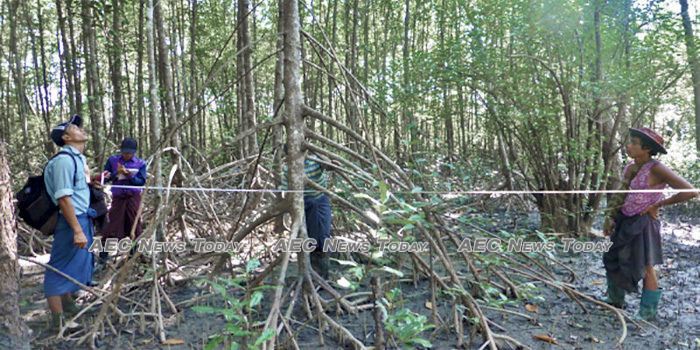 MYANMAR - A new study by the National University of Singapore (NUS) has found that mangrove deforestation in Myanmar is taking place at a faster rate than previously estimated. The NUS study, led by Edward Webb and Jose Don De Alban and published online in Environmental Research Letters on March 3, found that between 1996 – 2016 more than 60 per cent of all mangroves in Myanmar had been permanently or temporarily converted to other uses, including the growing of rice, oil palm, and rubber, as well as for urbanisation. Mangroves slow down climate change by sequestering carbon, and also conserve biodiversity, improve food and nutrition security and support human well-being, according to the International Institute for Sustainable Development(IISD). The institute says sustainable management of mangroves can help achieve the 2030 Agenda for Sustainable Development of the United Nations (UN). READ MORE ‘Submerged mangrove forests are scientific wonders — and home to rich biodiversity  INDIA - Mangrove communities include fish, insects, shellfish, birds of many species (like pelicans, egrets and spoonbills), saltwater crocodiles, monkeys, algae and fungi. Many organisms, especially fish, spend their early years in the protection of the mangroves and their intricate belowand above-ground root systems. Mangroves, along with sea grasses and wetlands, comprise the ‘blue carbon’ ecosystem of stored carbon in sediments along many tropical and subtropical coastal zones. Their complex aerial and submerged root systems moderate current flows and the canopies moderate wind flow — they are the interface between the wetlands and sea grass communities for the continental flow of and solutes into the ecosystem. Mangroves also supply fuelwood and other forest products, like food and medicine, for people. the mangroves form an environmental sequence, with the red mangroves closest to the shore, then the black mangroves in sites that can be periodically inundated, and then, the white mangroves above the high tide line. The mangroves do so much for the planet — but we are losing them very disturbingly and rapidly to oil spills, pollution and shoreline development. READ MORE From mangrove to mountain: Building coastal resilience in Timor-Leste .jpeg) EAST TIMOR - At the heart of the Coral Triangle – the global centre of marine biodiversity – lies the small island developing state of Timor-Leste. Indigenous legend holds that Timór Lorosa'e (‘East Rising Sun’) was created by a great crocodile, Lafaek Diak, that transformed itself into land so that its human friends could live there. Imposing mountains – the spine of the mythological crocodile – dominate the centre of the country. Ancient marine fossils litter their peaks. Around two-thirds of the nation's people live in the narrow plain running along the country’s coastline, primarily making their living through fishing and farming. Offshore, in the rich waters of the Coral Triangle, is a powerhouse, reef-building coral biodiversity hotspot, sometimes called 'the Amazon of the seas' due to its natural abundance and importance as habitat for marine species. READ MORE Deadly cyclone cuts destructive path in India and Bangladesh 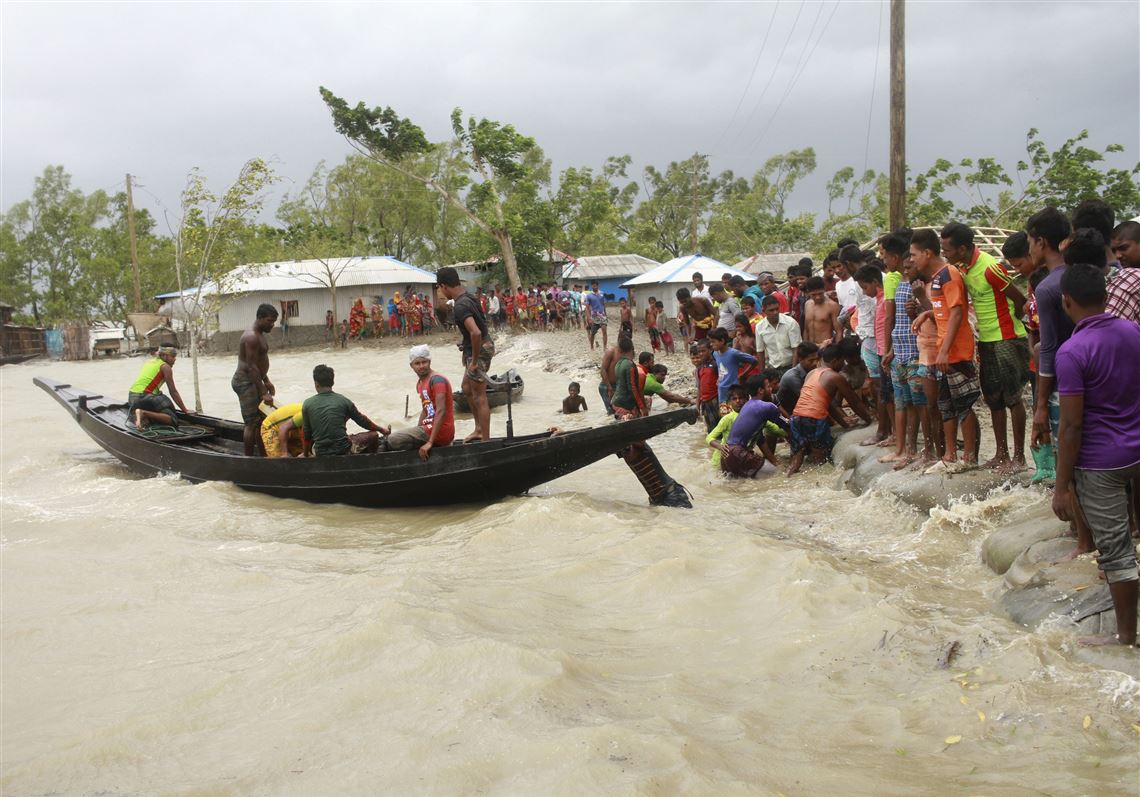 INDIA - Wide swaths of coastal India and Bangladesh were flooded and millions were without power Thursday as Cyclone Amphan, the most powerful storm to hit the region in more than a decade, killed over 80 people and cut a path of destruction that is still being assessed. Many parts of the Indian metropolis of Kolkata, home to more than 14 million people, were under water, and its airport was closed briefly by flooding. Roads were littered with uprooted trees and lamp posts, electricity and communication lines were down and centuries-old buildings were damaged. Officials in both countries said the full extent of the damage caused by the cyclone was not known because communications to many places were cut. Hundreds of thousands of people were evacuated ahead of the storm, a process complicated by the coronavirus pandemic. READ MORE |
CHILDREN'S ART CALENDAR
|
|
Mangrove Action Project Click here to view past newsletters
|
|
Search News Archive
Saturday, May 23, 2020
MAP News Issue 495 - May 23, 2020
Saturday, May 9, 2020
MAP News Issue 494 - May 9,2020
|
The MAP News
494th Edition May 9, 2020 |
|
|
FEATURE Mangrove protection official  CAYMAN ISLANDS - Cayman’s mangroves now have official legal protection, which should, finally, prevent these dwindling yet critically important species from being removed by developers without consequence. On Monday, the National Conservation Council gazetted the adoption of a Species Conservation Plan, which formalises mangrove protection in law and outlines the very strict conditions under which they can be removed. Conservationists have warned about the dangers of mangrove clearance for years. More recently, there has been an increase in the number of development sites where a significant swathe of mangroves was cleared before planning permission was obtained. This meant that the Department of Environment was not given the opportunity to advise either against any removal or how it should be done to mitigate negative impact, raising concerns for the scientists at the department. Mangroves provide protection to developments from flooding and coastal erosion and are very difficult to replenish but have, nevertheless, been removed with alarming frequency in recent years. In many cases it appears developers are either unaware or simply do not care about the importance of mangroves or how they would benefit the proposed projects. READ MORE GLOBAL Forest loss are slowing down - but not nearly enough  GLOBAL - The latest snapshot of the world’s forests shows that we are still struggling to meet a fundamental challenge—to make use of our forests while keeping them healthy for the benefit of us all. The 2020 edition of the Global Forest Resources Assessment, compiled with information from countries and territories worldwide, shows that regardless of strengthened efforts to halt deforestation, the world still continues to lose forest cover. The first such survey, released more than seventy years ago by a then-nascent United Nations agency, the Food and Agriculture Organization (FAO), showed there were still sufficient forest resources to provide much-needed timber and but that sustaining the resource would require finding ways to benefit from the land without depleting the natural wealth on which the world would need to depend. Fast-forward to 2020 and the latest forest assessment shows that forest loss is slowing but not enough is being done to conserve and restore forests for the benefit of us all.READ MORE AFRICA Secure land tenure: The legal battles of the Bagyeli  CAMEROON - Indigenous Bagyeli communities in Cameroon are appealing to the United Nations and national courts to save their lands and forests, which are in the process of being given to large agri-business interests by the State. “I can't just sit back and let them snatch up our forests. I am even prepared to go to court to defend our forests,” says Virginie Ngo Houlé firmly. A mother of eight, Virginie is a Bagyeli woman from the village of Gwap. For over 35 years, she has taken care of her family through the gathering, fishing and harvesting activities she carries out in the forests of the Ocean Division in southern Cameroon. Virginie has just picked medicinal plants found in the forest to treat her abscesses. She is suffering from whitlow, an infection localised on the middle finger of both her hands. Despite the severe pain she is in, Virginie is participating in the session to report on the progress of legal proceedings to save the Bagyeli forests from being seized by the company Biopalm. READ MORE AMERICAS Planting trees is no panacea for climate change, says ecologist 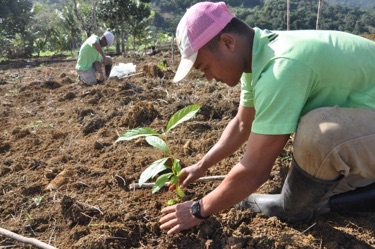 BRAZIL - Restoration ecologist Karen Holl has a simple message for anyone who thinks planting 1 trillion trees will reverse the damage of climate change. "We can't plant our way out of climate change," says Holl, professor of environmental studies at UC Santa Cruz and a leading expert in forest restoration. “It is only one piece of the puzzle.” In a commentary that appears in the May 8 issue of Science, Holl and coauthor Pedro Brancalion, a professor in the Department of Forest Sciences at the University of São Paulo, endorse the benefits of trees but caution against a simplistic view of tree-planting as a panacea for environmental degradation. "Trees are deeply entrenched in the human psyche," said Holl, a restoration ecologist who has prepared hundreds of students for careers in environmental stewardship. "It's very satisfying to go out and put a tree in the ground. It's a concrete, tangible thing to do." READ MORE Mangroves and Manatee Poop  USA - Professor’s “virtual field trips” give students a close-up look at marine life. “Manatee poop is really, really important,” Betsy Stoner says, lying on her stomach on a wooden dock to scoop up a bucketful of brackish water from the Indian River Lagoon National Estuary on Florida’s Atlantic Coast. Reaching in with her bare hands, the Natural and Applied Sciences lecturer picks up a small oval nugget of manatee dung as the camera zooms in for a close-up. Now, her students can see exactly what she sees: Clues to the animal’s digestive health including partially digested seagrass, an intestinal parasite and microplastics, tiny fragments of plastic waste that threaten our marine ecosystems. Microplastics and the environmental havoc they wreak are a focus of Stoner’s Environmental Science and Sustainability and Oceanography courses. In a typical semester, students are treated to immersive lab experiences, dissecting mussels, conducting autopsies on fish and analyzing water samples from plastic bottles as they learn firsthand about the harmful effects of plastic waste on our food chain. The advent of COVID-19, however, upended Stoner's lesson plans so as the university transitioned to online learning, she has embraced an innovative approach to "virtual field trips." READ MORE How to make a mangrove 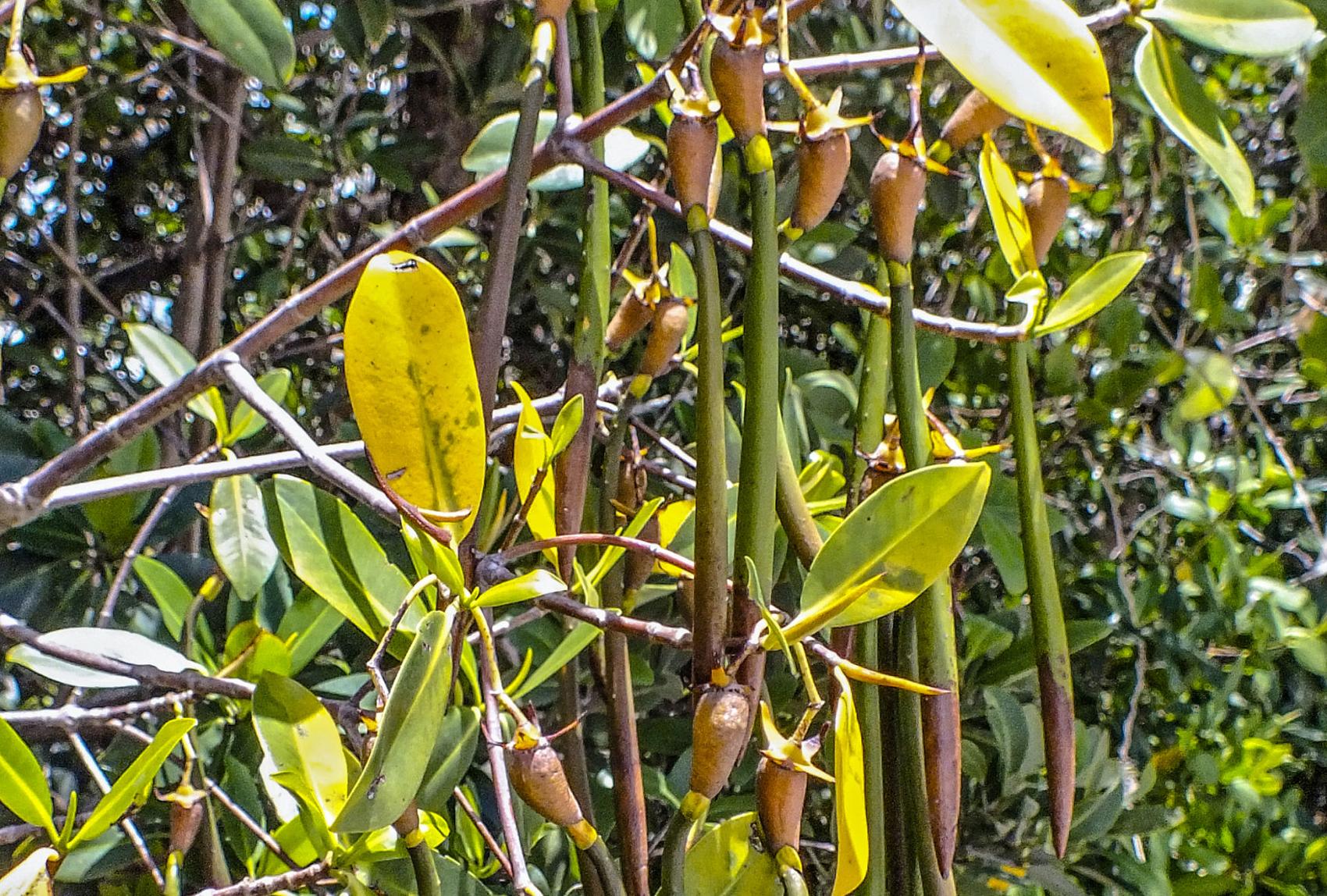 USA - As Robert Lugiewicz alluded to in his column last week, spring is in the air and that means lots of babies are being made. On my last trip out to Charlotte Harbor from my house on Alligator Creek, I couldn’t help but notice all of the red mangrove propagules. Propagules, for those not familiar, are the long seed pods red mangroves produce. They look a bit like string beans hanging from the tree. The other mangrove species produce propagules too, but they’re not nearly as prominent. You might wonder why we call seed pods propagules. Well, we do so because propagules are really more than just seeds. They’re an embryo that has already germinated. Think of it as a pre-sprouted seed. This is one of the many adaptation strategies mangroves rely on to survive in a salty, tidally influenced environment. READ MORE Rising ocean temperatures threaten seagrass meadows and their ability to hold carbon 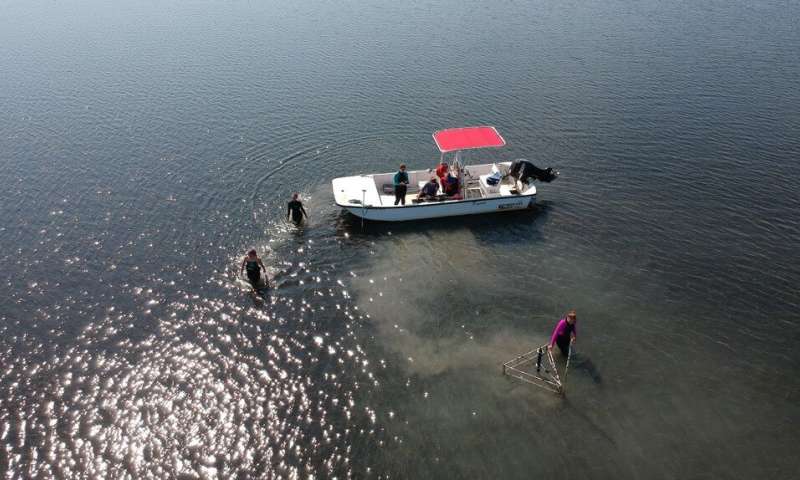 USA - As carbon dioxide emissions continue to increase, scientists have recognized that seagrass meadows are important to mitigation because they have high rates of carbon storage. However, rising ocean temperatures threaten seagrass meadows and their ability to retain carbon. The situation underscores the need for ecosystem data on the vulnerability and resilience of these meadows and on the realistic potential of seagrasses for long-term carbon sequestration. Over an 11-year period, researchers at the National Science Foundation-funded Virginia Coast Reserve Long-Term Ecological Research site used innovative instruments to measure the metabolism of an eelgrass meadow that had been restored in 2001. The results are published in the journal Limnology and Oceanography. READ MORE Florida: endangered sea turtles thriving thanks to Covid-19 restrictions 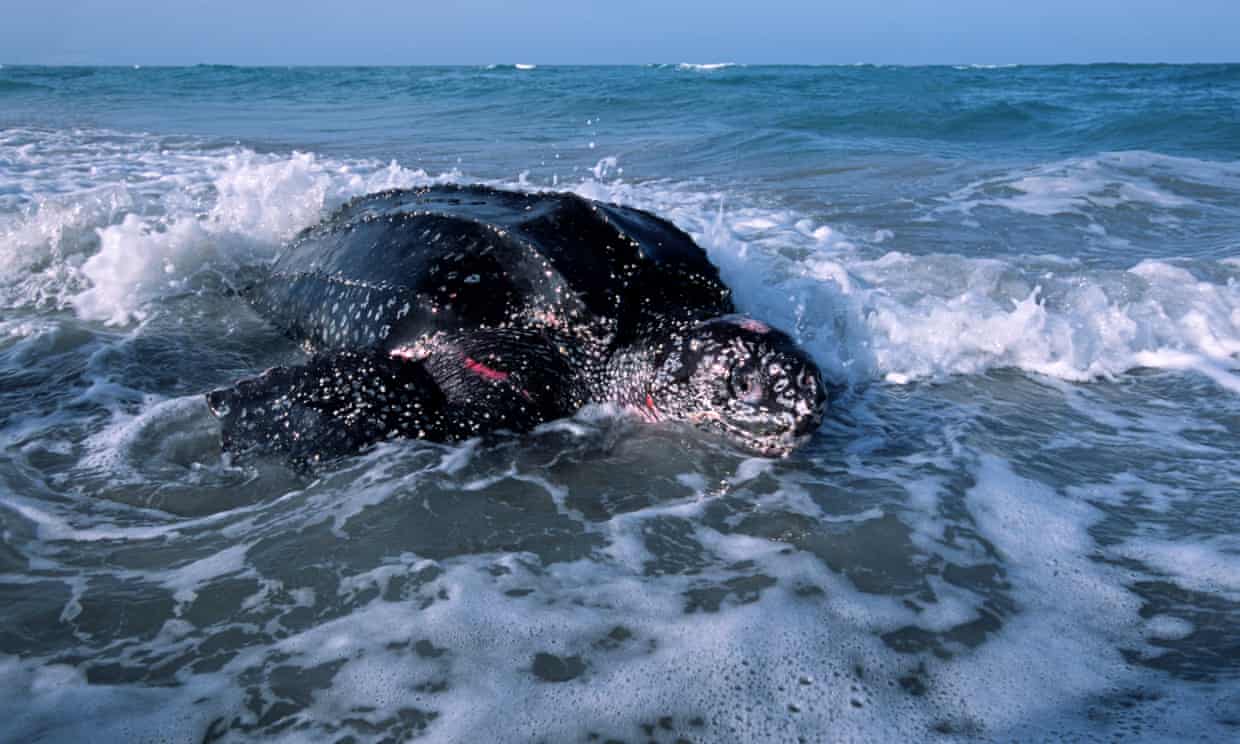 USA - Marine life researchers in Florida say that coronavirus restrictions keeping humans and harmful waste off beaches are having a beneficial effect on the numbers of endangered leatherback sea turtles in the state. With the summer nesting season barely two weeks old, staff from the Loggerhead MarineLife Center in Juno Beach have already found and marked 76 nests of the world’s largest species of sea turtle on the nine and half mile stretch they monitor, a “significant” increase from the same stage last year. The elevated numbers are raising hopes of a bumper nesting season for leatherbacks, and also vulnerable loggerhead turtles that begin to arrive to lay eggs before the end of May. “We’re excited to see our turtles thrive in this environment,” Sarah Hirsch, the center’s senior manager of research and data. READ MORE ASIA Over 150,000 Flamingos besiege Mumbai after city comes to a standstill amid Covid-19 lockdown  INDIA - The Bombay Natural History Society (BNHS) has reportedly ascertained that around 25% more flamingos have migrated to the city when compared to last year. And this is 100% because of a decrease in human activity, according to the Hindustan Times. Every year, flamingos flock to the city which is a part of their migratory patterns. However Deepak Apte, the director of the BNHS, told the Hindustan Times that the lockdown “is giving these birds peace for roosting, no disturbance in their attempt to obtain food and overall encouraging habitat.” He also told the Indian newspaper that the increase is also likely tied to a successful breeding season two years ago, as well as the destruction of wetlands on India’s eastern seafront that could be pushing the birds to the Mumbai region.The Science Times has calculated around 150,000 flamingos have come to the area. READ MORE Experts hail 'golden year' for wildlife  THAILAND - The easing of coral bleaching and absence of tourists due to the Covid-19 pandemic is spurring hopes of restoring years of damage to marine ecosystems, according to Thon Thamrongnawasawat, a well-known marine scientist. In a Facebook post recently, Mr Thon said this could be a "golden year" in the country's efforts to save the undersea environment, which many experts agree has been damaged by excess tourism. Surveys found that during recent years, the corals along the country's extensive coastline have shown signs of severe bleaching. However, this year the problem has substantially improved with only the corals in some areas displaying pale colours, which is a curable early stage of bleaching. "Generally, almost all the corals are looking good with no signs of bleaching," he said. READ MORE The Indus delta is being lost to the sea and we need to do something about it  PAKISTAN - "What you don’t see, you cannot feel." This phrase was used by Tanzeela Qambrani, Pakistan’s first lawmaker of African descent, to encapsulate the plight of the impoverished communities living in the once-flourishing Indus delta. Qambrani, whose Sheedi community is concentrated in the coastal regions of Makran in Balochistan province and Sindh, said the level of poverty is "incredible". Known as the vertebra of Pakistan’s ecology and economy, the Indus delta is the fifth largest in the world and home to the seventh biggest mangrove forest. In recognition of its international importance, the wetland was designated as a Ramsar site in 2002. It forms where the mighty Indus river flows into the Arabian Sea, creating a complex system of swamps, streams and mangrove forests. A triangular piece of fertile land is created when the fast-flowing river deposits rich sediment as it empties into the sea. However, dam construction and mismanagement of water by the government have significantly reduced river flows, causing the delta to shrink, and threatening both human life and its ecology. The absence of flowing freshwater allows seawater into the delta, destroying the soil and the aquifers, making it unfit for humans, animals or crops. READ MORE Shrimp disease outbreak in China ‘not a threat’ to global industry  CHINA - The reported outbreak of decapod iridescent virus 1 (DIV1) in China, known as shrimp hemocyte iridescent virus (SHIV) in shrimp, isn't a threat to the wider global shrimp industry. However, concerns remain over possible more lethal strains, a top industry source told Undercurrent News. On Sunday (April 12), South China Morning Post reported an outbreak of DIV1 in south China has "terrified" shrimp farmers. With reportedly a quarter of pond area in Guangdong province affected, farmers are fretting whether they will face mass deaths of a similar scale to African swine fever, which wiped out as much as 60% of China’s pig herd, according to the article. READ MORE Indian tigers find lockdown grrreat 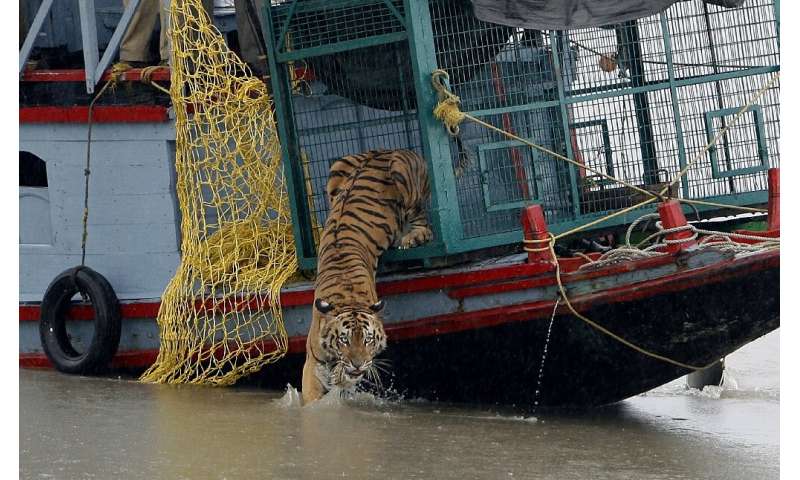 INDIA - With the humans of West Bengal under virus lockdown, tigers in the Sundarbans mangrove forest in the eastern Indian state are coming out to play, with park rangers Thursday reporting a jump in sightings of the big cats. The Sundarbans, straddling West Bengal and neighbouring Bangladesh, is the world's biggest mangrove forest and home to the majestic and endangered Royal Bengal tiger. "Sighting of tigers has gone up... after the lockdown," said Sudhir Das, director of the Sundarbans tiger reserve, referring to the nationwide restrictions in place since late March. In normal times, forest officials catch a glimpse of the big cats no more than twice a week, Das said. But with the lockdown ending tourist traffic and grounding the noisy motorboats and launches that usually ply the region's waterways, they are now sighting tigers "up to six times" a week, he added. READ MORE OCEANA Mangrove seedlings planted along Namoli coastline  FIJI - Three rows of mangrove seedlings were planted along the coastline of Namoli Village in Lautoka today as part of the Ministry of Waterways and Environment’s grey-green infrastructure project launch. Waterways and Environment permanent secretary Joshua Wycliffe said the mangroves were part of the long term green solution that the ministry would be introducing through the Ridge to Reef program. He said the program highlighted the importance of providing nature-based solutions to protecting the environment. WATCH VIDEO |
CHILDREN'S ART CALENDAR
|
|
Mangrove Action Project Click here to view past newsletters
|
|
-
The community of adults and youth in Cayman Islands has come together recently to release a series of educational videos. Each is geared to...
-
By Alfredo Quarto, Program & Policy Director Co-founder, MAP There is a rather urgent situation concerning the bio-invasion of the Son...
-
By: Isabel Robinson, MAP Volunteer Intern Some months ago I decided to come to Thailand and do an internship in mangrove conservation, ...
MAP News Issue #596 = April 20, 2024
ENTRIES NOW OPEN! Mangrove Photography Awards 2024 10 Years Celebrating Mangroves GLOBAL - MAP has launched our 10th Mangrove Photograp...




